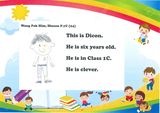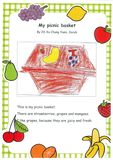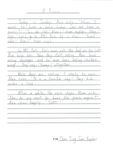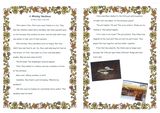English Language Education Key Learning Area
The English Language Education Key Learning Area (KLA) is an integral part of the school curriculum that provides students with a wide range of learning experiences to enhance their:
- English language proficiency for study, work and leisure;
- personal and intellectual development, and social skills;
- cultural understanding; and
- global competitiveness.
The overall aims of the English Language Education KLA curriculum are:
- to provide every student of English with further opportunities for extending their knowledge and experience of the cultures of other people as well as opportunities for personal and intellectual development, further studies, pleasure and work in the English medium; and
- to enable every student to prepare for the changing socio-economic demands resulting from advances in information technology; these demands include the interpretation, use and production of materials for pleasure, study and work in the English medium.
The curriculum framework for English Language Education is the overall structure for organising learning, teaching and assessment for the subjects of the English Language Education KLA. The framework comprises a set of interlocking components including:
- subject knowledge and skills, which are expressed in the form of learning targets under
- the Interpersonal, Knowledge and Experience Strands, as well as learning objectives;
- generic skills; and
- positive values and attitudes.
The subject target of English Language is for students to develop an ever-improving capability to use English:
- to think and communicate
- to acquire, develop and apply knowledge; and
- to respond and give expression to experience;
and within these contexts, to develop and apply an ever-increasing understanding of how language is organised, used and learnt.
NET Scheme
The objectives of the Primary NET Scheme are to:
- provide an authentic environment for children to learn English;
- develop children’s interest in learning English and establish the foundation for life-long learning;
- help local teachers develop innovative learning and teaching methods, materials, curricula and activities suited to the needs of local children; and
- disseminate good practices in language learning and teaching through region-based teacher development programmes such as experience-sharing seminars/workshops and networking activities.
Students' Work Display























